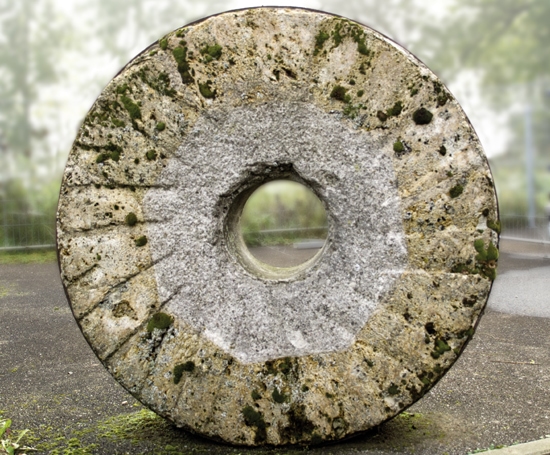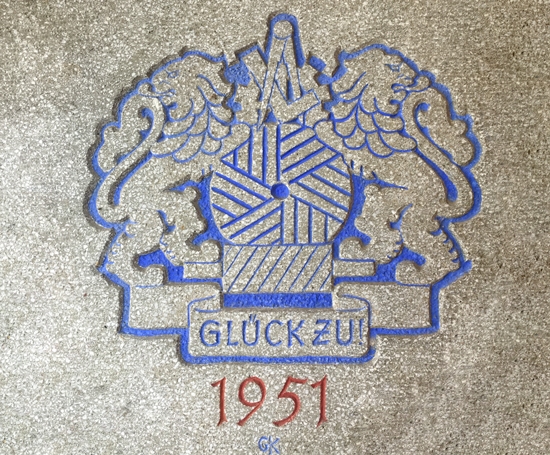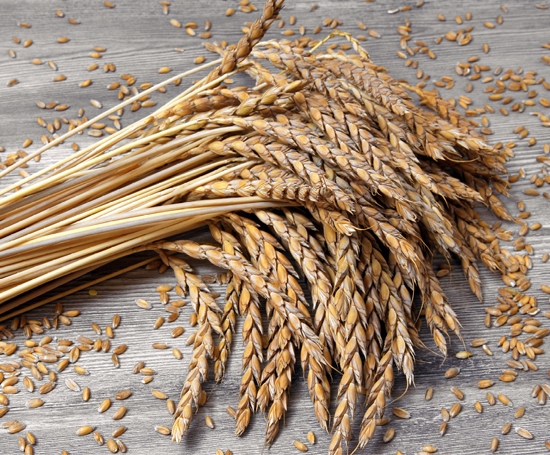The Ostermühle – family-owned for over 200 years.
The Osterrmühle was first mentioned in a document here in Langenau in 1297 and has been in the family for over 200 years, now in the 7th generation. It has been a Bioland producer partner and certified organic since 1993.
The processing of spelt has a very long tradition at the mill. It was ground into fine flour until the end of the 1940s. After that, this grain was somewhat forgotten.
Georg Mack, the father of the current owners, started again in 1979 to grow spelt at the mill's agricultural suppliers in order to dehusk it in the mill and then grind it into spelt flour. In order not to risk any mixing with wheat within the mill, the milling process was completely switched to spelt in 1998.



Over the years, the focus of the Ostermühle shifted significantly towards trading in spelt noodles and natural foods and the production of soup pearls and savoury snacks.
The milling of grain was then discontinued. Today, the company in Langenau is an efficient supplier of natural food products with a focus on spelt noodles, spelt soup and vegetable broth and soup add-ins. Both individual containers and whole pallets are sold under the Ostermühle brand.
But goods in neutral packaging or with the customer's label are also a focus. Customers are natural food, farm and health food shops, wholesalers, food retailers, mail order companies and many others. For over 700 years, the Ostermühle has been in the service of nutrition. We still feel committed to this long artisan tradition today.
It is our goal to produce healthy and natural products for our customers. As an organic country/a Bioland farm, we make an active contribution to preserving the environment. The environmentally friendly energy generated by our hydroelectric power plant on the Nau River is used for production at our farm.
The trend towards environmentally friendly and conscious nutrition is helping our products to become more and more important. In the ever faster changing times, the Ostermühle combines modern forms of nutrition with old mill tradition.
With us you will find a selected spelt assortment with a focus on spelt noodles, soups, soup pearls and mush flour for wholesalers, retailers, millers and farm shops.
History
1297
The Ostermühle was first mentioned in 1297 and is located at the foot of the Swabian Alb on the "Nau". The fact that the mill is located in the east of Langenau gave it the name Ostermühle.
1689
In 1689, the mill was burnt down by French soldiers, but was subsequently rebuilt on the same site.
1803
Until about 1803, the Ostermühle was a Bannmühle/seigneurial mill, which belonged to the Kaisheim monastery. A "ban area" was the term used to describe a demarcated area under the control of a landlord. Everyone in the ban area was bound to have their grain ground in their "Bannmühle/seigneurial mill".
Anyone who had his mill ground at another mill was severely punished. Since the Ostermühle was under the protection of the monastery, it was largely safe from destruction by war throughout the centuries. In the early centuries, such destruction would have had a fundamental impact on the ability of the people who depended on the mill to feed themselves, if not made it completely impossible for certain periods of time, and would thus have meant famine for the people. At the beginning of the 19th century, many mills owned by the church were "privatised" as part of the Napoleonic secularisation. In 1803, Georg Mack acquired the Ostermühle. Since then, the craftsmanship and tradition of milling have been passed on from one generation to the next.
2016
In September 2016, production of the salty snacks and soup pearls began at the newly built production site in Elchingen, Bavaria, after space had become too tight at the Langenau headquarters.
2019
Today, the siblings Martina and Rolf Mack are already running the company in the 7th generation.
